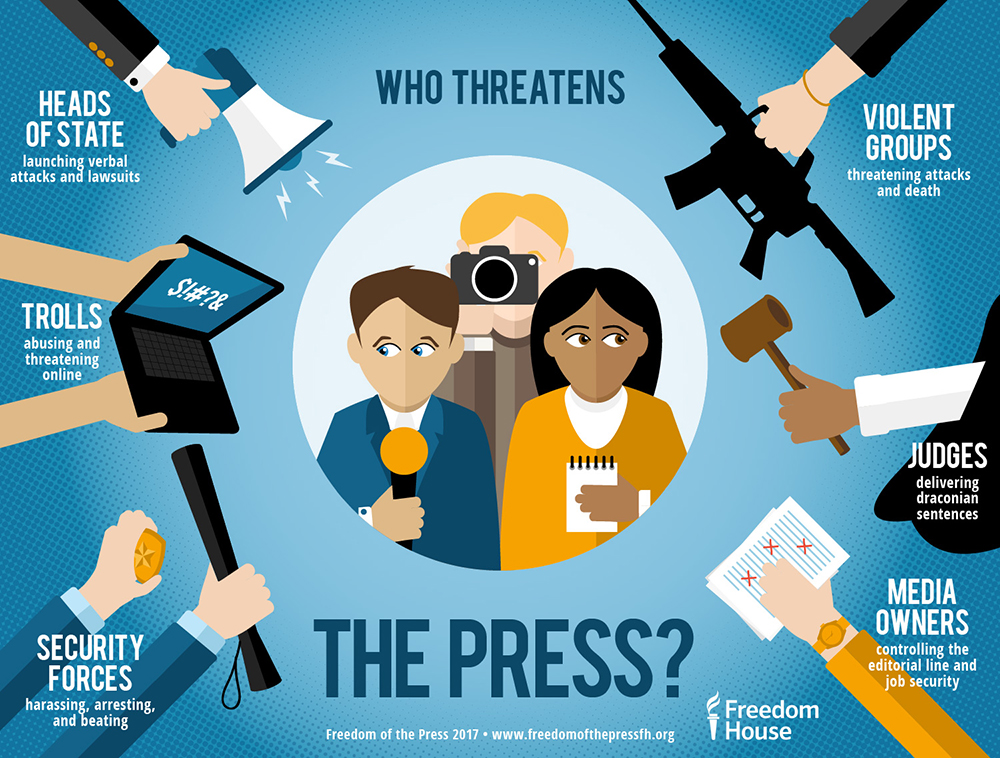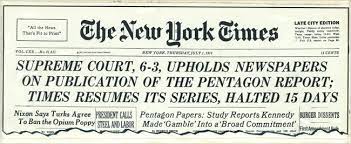3.4 First Amendment: Freedom of the Press
2 min read•june 18, 2024
Jed Quiaoit
Annika Tekumulla
AP US Government 👩🏾⚖️
240 resourcesSee Units
The First Amendment also guarantees freedom of the press. The right to a free press is considered one of the cornerstones of a democratic society, as it allows for the dissemination of information and ideas, as well as serves as a check against government power and abuse. 🎞️
The framers of the Constitution recognized the importance of a free press and included it in the First Amendment to ensure that the government would not be able to control or suppress the flow of information. The First Amendment protects both the right to print and distribute news and opinions, as well as the right of journalists to gather and report information without interference from the government.

Source: Freedom House
Illustrative Example: New York Times Co. v. United States (1971)
Freedom of the press has been greatly disputed over the years. An example of this is during the 1971 Pentagon Papers scandal. The Pentagon Papers were a secret report of American involvement in Vietnam that was leaked by Daniel Ellsberg, a reporter at the NY Times. 😳
This ultimately escalated towards the Supreme Course case of New York Times Co. v. United States (1971) reinforced the principle of freedom of the press in the United States, particularly when it comes to matters of national security. The Supreme Court in this case established a strong principle against government censorship or prior restraint of the press, which refers to the practice of preventing information from being published in the first place.
The case arose when the government sought to enjoin the New York Times from publishing classified information about the Vietnam War, claiming that it would harm national security by violating the Espionage Act of 1917. The Supreme Court ruled that the newspaper could publish the papers without prior restraint because their publishing did not lead to the “inevitable, direct, and immediate event imperiling the safety of American forces.”
This ruling established a "heavy presumption against prior restraint," meaning that the government must demonstrate a compelling interest in preventing the publication of information and that no alternative means exist to protect that interest. This decision has been considered a significant landmark in the history of the First Amendment, as it reinforced the principle that freedom of the press is a cornerstone of a democratic society and must be protected, even in cases involving national security. ⛓️

Source: OCLRE
🎥 Watch: AP GOPO - Req. Supreme Court Cases (1st-10th Amendments)
Browse Study Guides By Unit
🏛Unit 1 – Foundations of American Democracy
⚖️Unit 2 – Branches of Government
✊🏽Unit 3 – Civil Liberties & Civil Rights
🐘Unit 4 – American Political Ideologies & Beliefs
🗳Unit 5 – Political Participation
🤔Exam Skills

Fiveable
Resources
© 2025 Fiveable Inc. All rights reserved.